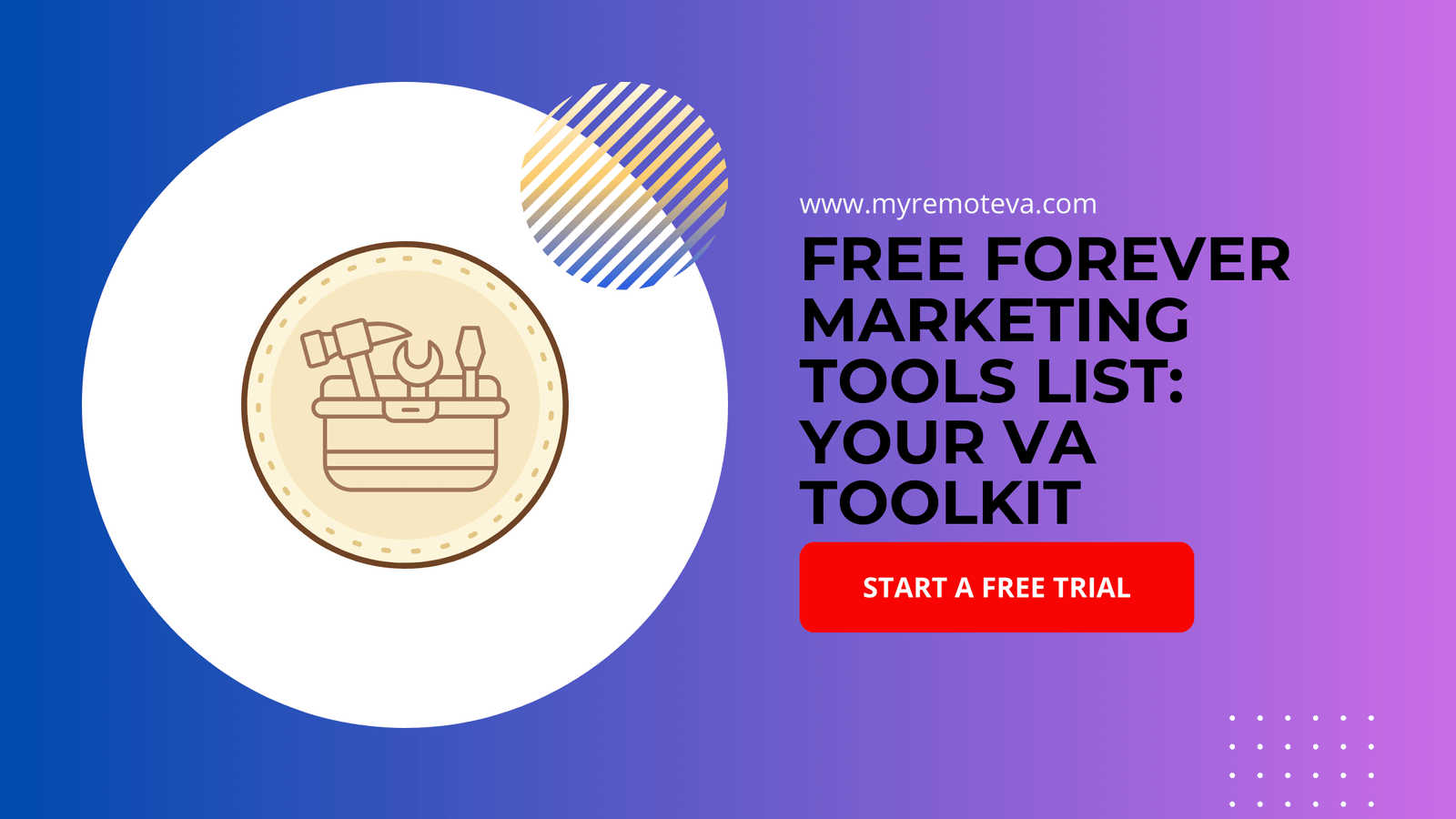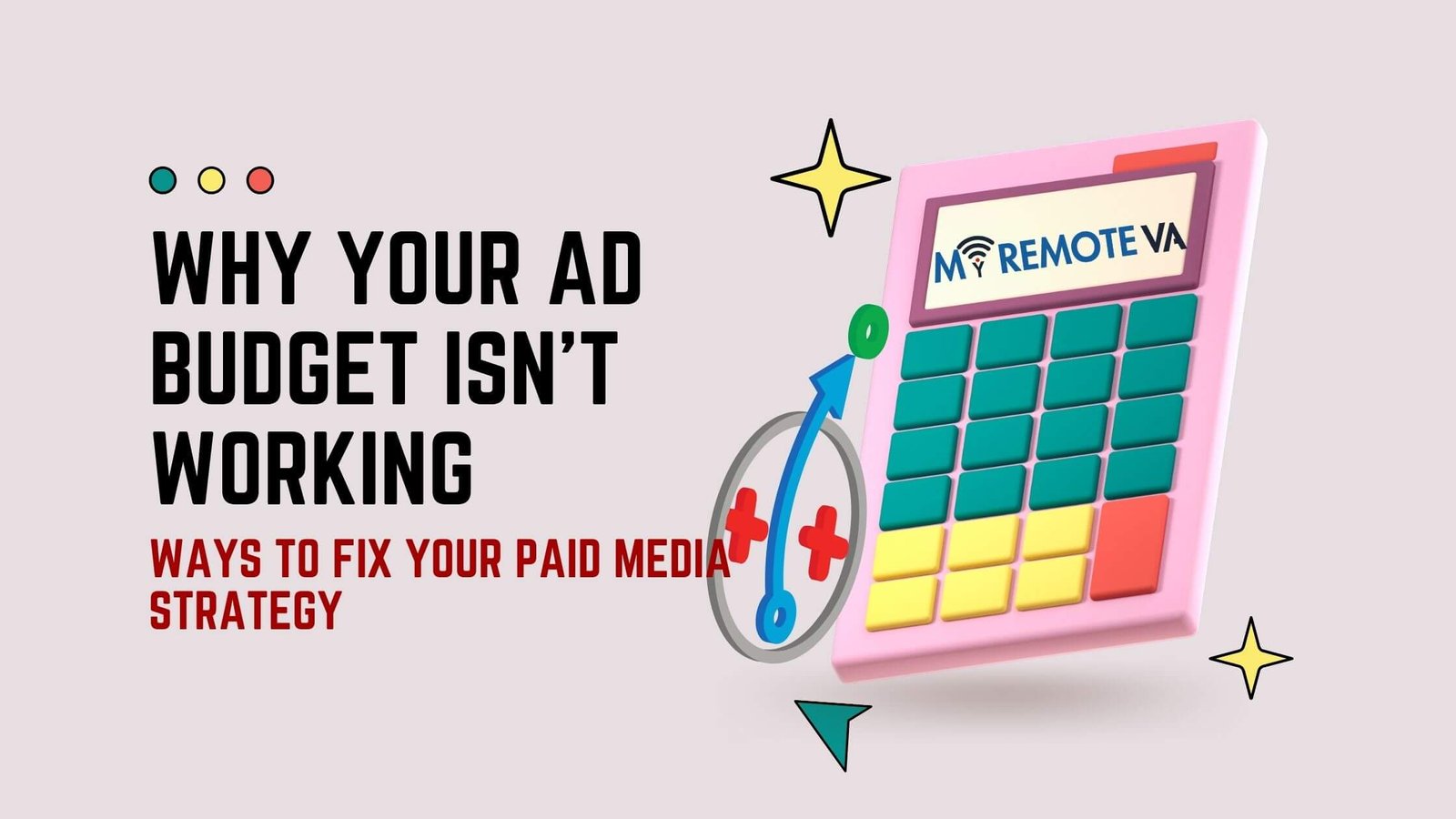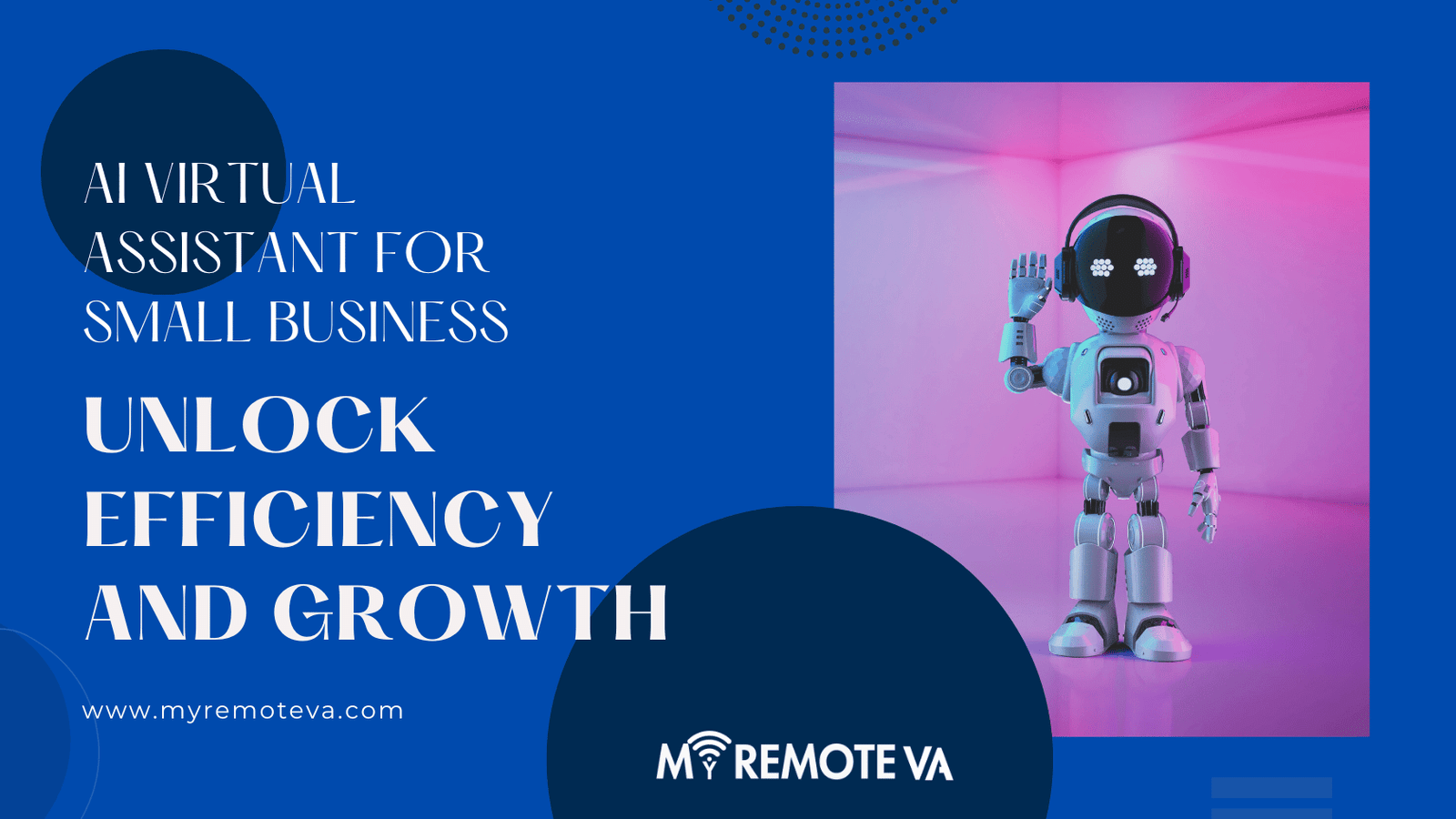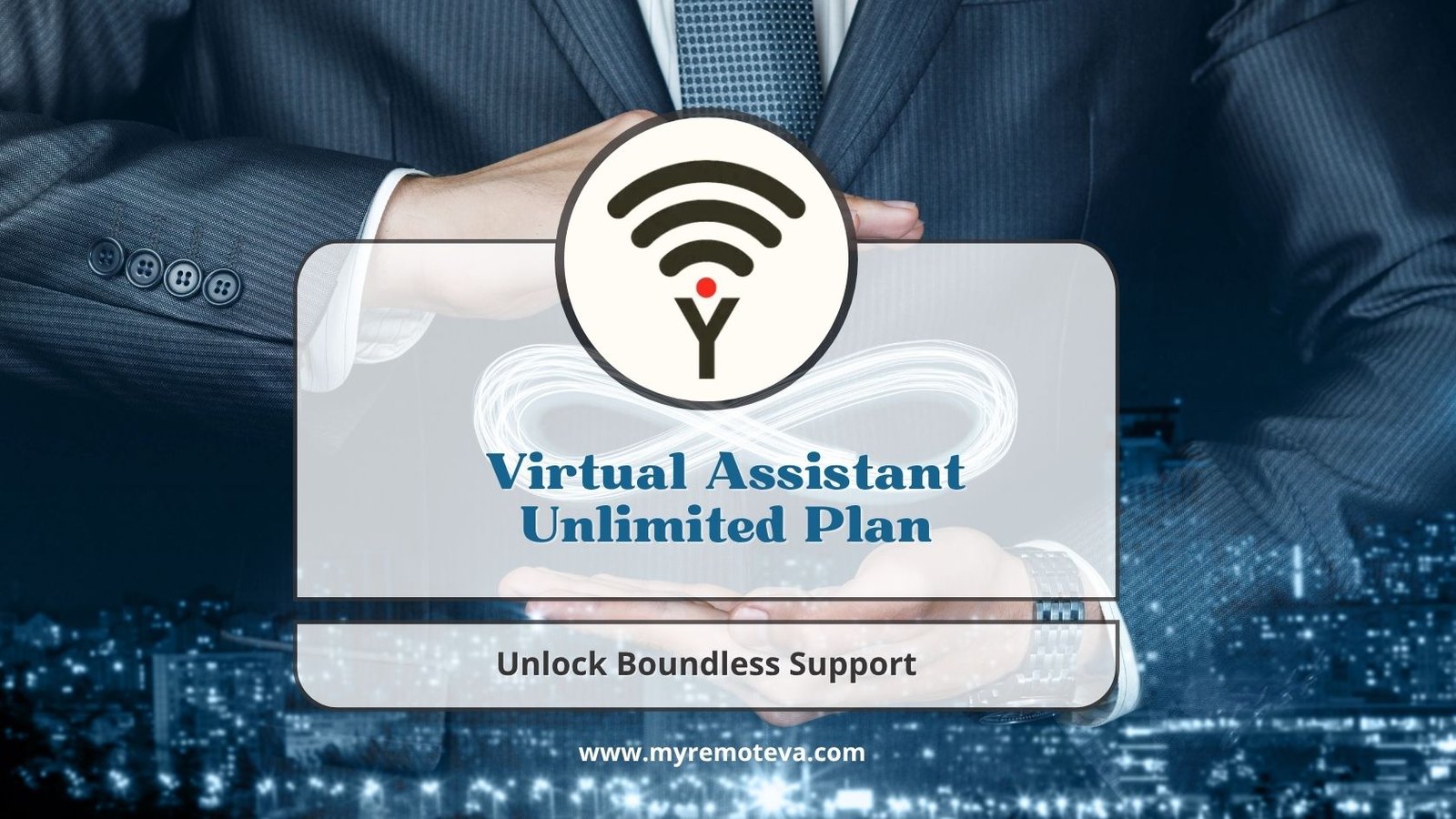Affordable Virtual Assistant for Small Business: Scale Your Business Without Breaking the Bank
Small businesses often face the challenge of needing extra support without the budget for full-time employees. An affordable virtual assistant (VA) can be the perfect solution, allowing you to delegate crucial tasks and focus on growing your business.
- Affordable Virtual Assistant for Small Business: Scale Your Business Without Breaking the Bank
- Introduction to Affordable Virtual Assistants for Small Businesses
- Why Small Businesses Need Affordable Virtual Assistants
- Tasks You Can Outsource to an Affordable Virtual Assistant
- Factors Affecting the Cost of a Virtual Assistant
- Finding Affordable Virtual Assistants: Where to Look
- Market Signals: Recent Trends in VA Services (USA, UK, New Zealand, Singapore, Australia, UAE - Last Month)
- Tips for Working Effectively with an Affordable Virtual Assistant
- Measuring the ROI of Your Affordable Virtual Assistant
- FAQ: Affordable Virtual Assistants for Small Businesses
- What is the Typical Cost of an Affordable Virtual Assistant?
- How Do I Ensure Data Security When Working With a Virtual Assistant?
- What skills should I look for in an affordable virtual assistant?
- How Do I Manage a Virtual Assistant Remotely?
- How Do I Pay an Affordable Virtual Assistant?
- What if I'm not happy with the VA's performance?
- Can a VA Handle Confidential Information?
- Are there any legal considerations when hiring a VA?
- How Much Work Should I Give a Virtual Assistant to Start?
- How can I ensure the VA understands my brand and business goals?
Why Choose an Affordable Virtual Assistant?
The benefits of hiring a VA are numerous, especially when budget is a primary concern:
- Cost-Effective: Pay only for the hours worked, eliminating the costs associated with employee benefits, office space, and equipment.
- Increased Productivity: Free up your time and your team’s time to concentrate on core business functions and strategic initiatives.
- Access to Expertise: Tap into a pool of skilled professionals with expertise in various areas, from administrative tasks to marketing support.
- Scalability: Easily adjust your level of support as your business needs evolve.
Delegate Tasks to Your Affordable VA
A VA can handle a wide range of tasks, including:
- Administrative Support: Managing emails, scheduling appointments, data entry, and general office tasks.
- Customer Support: Responding to customer inquiries, providing support via email or chat, and managing customer databases.
- Marketing Assistance: Social media management, content creation, email marketing, and basic SEO tasks.
- Technical Support: Website maintenance, basic IT troubleshooting, and software support.
Finding the Right Fit
Many VA services offer flexible plans tailored to different budgets and needs. Look for providers that offer hourly or monthly plans, allowing you to customize your level of support. Consider options such as curated hourly monthly plans in blocks of hours or dedicated plans for a set number of hours per week. Some even offer a free trial or a free plan, letting you test the waters before committing.
By strategically delegating tasks to an affordable virtual assistant, small businesses can unlock significant cost savings, boost productivity, and achieve sustainable growth.
Introduction to Affordable Virtual Assistants for Small Businesses
As a small business owner, you’re constantly juggling multiple responsibilities. From managing day-to-day operations to focusing on growth strategies, time is your most valuable asset. An affordable virtual assistant (VA) can be a game-changer, allowing you to reclaim your time and focus on what truly matters: scaling your business.
Why Consider an Affordable Virtual Assistant?
Small businesses often face budget constraints, making it difficult to justify the expense of a full-time employee. An affordable VA offers a cost-effective solution, providing access to skilled support without the overhead associated with traditional hiring. Instead of a salary and benefits package, you typically pay for the hours or specific tasks completed.
Many small businesses find that delegating tasks to virtual assistants leads to increased efficiency and productivity. By offloading administrative, technical, or creative tasks, you and your team can concentrate on core competencies and revenue-generating activities. This can involve taking care of administrative duties, tech support, customer service, marketing initiatives, creative projects, and executive-level support.
Finding the Right Fit
The key to success with an affordable VA is finding the right fit for your specific needs. Look for a VA or virtual assistant service that offers flexible plans and a range of skills to match your business requirements. The right VA can truly enhance business operations, no matter how small the business.
Why Small Businesses Need Affordable Virtual Assistants
For small businesses, time and resources are precious. Juggling daily operations, chasing growth, and managing administrative tasks can quickly become overwhelming. This is where an affordable virtual assistant (VA) becomes invaluable. Instead of hiring full-time staff, which involves significant overhead costs, a VA provides on-demand support, allowing you to focus on your core business activities and strategic initiatives.
Increased Efficiency and Productivity
A VA can handle time-consuming tasks such as:
- Email Management
- Scheduling and Calendar Management
- Data Entry
- Social Media Management
- Customer Support
- Basic Bookkeeping
By delegating these responsibilities, you and your team can concentrate on revenue-generating activities and projects that require your specific expertise. Studies show that businesses that effectively delegate tasks experience a noticeable increase in overall productivity .
Cost-Effectiveness
The “affordable” aspect of a virtual assistant is crucial for small businesses. You only pay for the hours they work, eliminating costs associated with employee benefits, office space, and equipment. For instance, curated Hourly Monthly Plans offer flexibility, allowing you to access expert VA support for a set number of hours, perfect for businesses with fluctuating needs. You can scale your support up or down as required, ensuring you only pay for what you need. Or you can build a team with dedicated plans for 80 hours or 160 hours. If you are not ready to commit you can start with a Forever Free Plan, which gives you 1 free hour every month with task support and rollover benefits.
Access to Specialized Skills
VAs often possess specialized skills in areas like marketing, tech, or customer support. This allows you to access expertise you might not otherwise be able to afford. Whether it’s creating engaging social media content, managing your website, or providing top-notch customer service, a skilled VA can significantly improve your business’s performance in these areas.
Improved Work-Life Balance
As a small business owner, it’s easy to become consumed by work. Hiring an affordable VA allows you to regain some control over your time and achieve a better work-life balance. By offloading tasks, you can dedicate more time to your personal life, preventing burnout and increasing overall well-being. A Dedicated Supervisor also manages your VA, shift, processes, and reporting so you don’t have to.
Tasks You Can Outsource to an Affordable Virtual Assistant
Small businesses often juggle multiple tasks with limited resources. An affordable virtual assistant can alleviate this burden by handling various responsibilities, freeing up your time to focus on core business activities.
Administrative Tasks
Offload time-consuming administrative duties to a VA, such as:
- Calendar Management: Scheduling appointments, managing meetings, and coordinating travel arrangements.
- Email Management: Filtering emails, responding to inquiries, and organizing your inbox.
- Data Entry: Inputting and managing data accurately and efficiently.
- Document Preparation: Creating and formatting documents, presentations, and reports.
Technical Support
Virtual assistants can provide crucial tech support to ensure smooth business operations:
- Website Maintenance: Updating content, troubleshooting issues, and ensuring website functionality.
- Social Media Management: Scheduling posts, engaging with followers, and monitoring social media channels.
- Basic IT Support: Assisting with software installations, troubleshooting technical problems, and providing remote support.
Customer Support
Enhance customer satisfaction by outsourcing customer support to a VA:
- Answering Inquiries: Responding to customer questions via phone, email, or chat.
- Order Processing: Managing orders, processing payments, and handling returns.
- Customer Service: Providing helpful and friendly assistance to customers.
Marketing Assistance
Expand your marketing reach with the help of a virtual assistant:
- Content Creation: Writing blog posts, articles, and social media updates.
- SEO Optimization: Conducting keyword research, optimizing website content, and building backlinks.
- Email Marketing: Creating and sending email newsletters, managing email lists, and tracking campaign performance.
Creative Tasks
Delegate creative tasks to a VA to enhance your brand image and marketing materials:
- Graphic Design: Creating logos, social media graphics, and marketing materials.
- Video Editing: Editing and producing videos for marketing or training purposes.
Executive Assistance
For founders and executives, a VA can provide high-level support:
- Research and Analysis: Gathering information, conducting research, and preparing reports.
- Project Management: Overseeing projects, tracking progress, and ensuring deadlines are met.
- Personal Errands: Handling personal tasks such as booking travel, making reservations, and managing personal appointments.
Factors Affecting the Cost of a Virtual Assistant
Finding an affordable virtual assistant for your small business requires understanding the factors that influence pricing. The cost of a virtual assistant can vary significantly based on several key elements.
Scope of Services
The type and complexity of tasks you require directly impact the cost. Simple administrative tasks, such as data entry or scheduling, generally command lower rates than specialized services like marketing, technical support, or executive-level assistance. For instance, a virtual assistant specializing in customer support will likely charge more than one focused solely on basic email management.
Experience and Skill Level
More experienced virtual assistants with specialized skills naturally command higher rates. A VA with years of experience in project management, or expertise in graphic design, will generally charge more than a VA who is relatively new to the field. Investing in experienced VAs can be worthwhile if you require complex tasks or specialized skills.
Location and Time Zone
The VA’s geographic location plays a crucial role. Virtual assistants based in countries with lower costs of living often offer more affordable rates. However, consider potential communication challenges and time zone differences. Carefully weigh the cost savings against the potential impact on communication and collaboration. Some businesses prefer to hire VAs in similar time zones for seamless integration with their team.
Hourly vs. Project-Based Pricing
Virtual assistants typically offer either hourly or project-based pricing models. Hourly rates are suitable for ongoing, variable tasks. Project-based pricing can be more predictable for specific, well-defined projects. Consider which pricing model best aligns with your business needs and budget.
Contract Type and Commitment Level
The length and nature of your contract can affect costs. Some virtual assistant services offer flexible hourly plans, allowing you to scale your support up or down as needed. Other services offer dedicated plans for a set number of hours per week or month. Commitment levels and contract terms can impact the overall affordability and flexibility of the virtual assistant services.
Finding Affordable Virtual Assistants: Where to Look
For small businesses seeking affordable virtual assistant support, several avenues can be explored. The key is to balance cost-effectiveness with reliability and the specific skills needed.
Freelance Platforms
Online freelance platforms host a vast pool of virtual assistants with varying skillsets and price points. These platforms allow you to post project requirements, review proposals, and choose a VA based on their experience and rates. While offering potential for lower costs, thorough vetting of candidates is crucial to ensure quality and reliability. These platforms also provide tools for communication and payment, streamlining the process.
Specialized VA Agencies
Agencies specializing in virtual assistant services can offer a curated pool of talent. They often pre-screen VAs, ensuring they possess the necessary skills and experience. This can save time and effort in the hiring process. Many agencies offer flexible plans tailored to different needs, which can be beneficial for small businesses with varying workloads. The hourly rates here vary and are typically a mid-price-point option. These plans may include hourly support to team-based and dedicated staffing solutions.
Referrals and Networking
Word-of-mouth referrals can be a valuable source of finding an affordable and reliable virtual assistant. Reaching out to your network and asking for recommendations can lead to finding VAs who have a proven track record and come highly recommended.
Assessing Your Needs First
Before embarking on your search, clearly define the tasks you want to delegate. This will help you determine the required skill set and estimate the number of hours needed, enabling you to accurately assess affordability. Be specific about the type of support needed like admin, tech, customer support, marketing, creative tasks, or even executive work. Consider also if a Dedicated Supervisor to manage the VA, their shift, processes, and reporting might be helpful, since managing a VA, their shift, processes, and reporting can be taxing to handle on top of other work.
Market Signals: Recent Trends in VA Services (USA, UK, New Zealand, Singapore, Australia, UAE – Last Month)
The demand for affordable virtual assistants continues to rise across key markets like the USA, UK, New Zealand, Singapore, Australia, and the UAE. Small businesses are increasingly recognizing the value of delegating tasks to VAs to improve efficiency and reduce operational costs.
Key Trends:
- Increased Focus on Flexibility: Businesses are seeking VAs offering flexible hourly and team-based plans. This allows them to scale their support up or down based on immediate needs, making it an attractive alternative to hiring full-time employees.
- Growing Popularity of Short-Term Commitments: Options like free trials or minimal hourly commitments (e.g., 1 free hour a month with task support and rollover benefits) resonate well with small businesses hesitant to commit to long-term contracts.
- Demand for Diverse Skillsets: While administrative tasks remain popular, there’s a growing need for VAs with expertise in specialized areas like digital marketing, customer support, creative tasks, and technical assistance.
- Emphasis on Task Management and Supervision: Small business owners often lack the time to manage a VA directly. Services that include a dedicated supervisor to oversee tasks, processes, and reporting are highly valued. This provides a hands-off solution for the business owner.
- Preference for Tiered Service Options: Businesses appreciate the ability to choose from a range of service packages, such as curated hourly monthly plans or dedicated team plans, to align with their specific requirements and budget. Options such as 5, 10, 20, or 30 hours monthly can provide flexible assistance.
The rise in popularity of affordable virtual assistant services reflects a broader trend of businesses embracing flexible and scalable solutions to address their staffing needs and enhance their competitiveness.
Tips for Working Effectively with an Affordable Virtual Assistant
Hiring an affordable virtual assistant can be a game-changer for small businesses, freeing up valuable time and resources. However, maximizing the benefits requires a strategic approach. Here are some tips to ensure a smooth and productive working relationship:
1. Clear Communication is Key
Detailed instructions are crucial. Clearly outline your expectations, preferred communication methods (email, chat, phone), and deadlines. The more information you provide upfront, the less back-and-forth will be needed, saving both time and money. It is important to define the scope of the projects and goals for the engagement.
2. Define Tasks & Prioritize
Create a well-defined list of tasks that you want your virtual assistant to handle. Prioritize these tasks based on urgency and impact on your business. This will help your VA focus on the most important activities first and ensure that your business goals are met efficiently. Delegating administrative tasks, customer support or marketing activities can be great starting points.
3. Provide Necessary Tools and Access
Ensure your VA has access to the necessary tools and platforms to perform their tasks effectively. This might include software logins, shared documents, and relevant training materials. If security is a concern, explore options for limited access or password management solutions.
4. Establish Regular Check-ins
Schedule regular check-ins with your virtual assistant to review progress, address any questions or concerns, and provide feedback. Consistent communication helps to maintain alignment and ensures that tasks are being completed to your satisfaction.
5. Offer Constructive Feedback
Provide specific and constructive feedback on your VA’s work. Highlight areas of improvement and acknowledge successes. Positive reinforcement can motivate your VA and encourage them to continue delivering high-quality work. When you have open and honest conversation, a good rapport can be created.
6. Start Small, Then Scale Up
Begin with a small, well-defined project to gauge your VA’s skills and work style. Once you’re comfortable with their performance, gradually delegate more complex or time-consuming tasks. This allows you to build trust and ensure a good fit before committing to a larger workload.
7. Document Processes
Creating documented processes for recurring tasks will significantly improve efficiency. This ensures consistency and allows your VA to perform tasks independently without constant supervision. Furthermore, It is useful to have the process documented for when you are handing over the VA job.
Measuring the ROI of Your Affordable Virtual Assistant
Hiring an affordable virtual assistant for your small business is an investment, and like any investment, you’ll want to track its return. But how do you quantify the value of time saved, tasks completed, and increased productivity? It’s not always a straightforward calculation, but here are some key metrics and considerations to help you measure the ROI of your VA.
Tracking Time Savings
One of the most direct ways to measure ROI is by tracking the time your VA saves you and your team. Before hiring a VA, estimate how much time you spend on tasks you plan to delegate. Once the VA is onboard, compare those estimates to the actual time you now spend on those tasks. The difference represents your time savings.
For example, if you were spending 10 hours per week on administrative tasks and your VA now handles those tasks, you’ve freed up 10 hours. Multiply that time by your hourly rate (or the hourly rate of the employee who was previously doing those tasks) to calculate the monetary value of your time savings. This can be especially impactful if you are a founder whose time is best spent on strategic growth initiatives.
Increased Productivity and Revenue
Beyond time savings, consider how your VA contributes to increased productivity and revenue. Can your VA handle customer support requests more efficiently, leading to happier customers and increased sales? Can they manage your social media, attracting more leads and potential clients? Can they streamline internal processes, allowing your team to focus on core business activities?
Track key performance indicators (KPIs) related to these areas before and after hiring a VA. For example, monitor your website traffic, lead generation numbers, customer satisfaction scores, and sales figures. Any positive changes in these metrics could be attributed to your VA’s contributions.
Reduced Overhead Costs
Hiring a virtual assistant often comes with significant cost savings compared to hiring a full-time employee. You avoid expenses such as salaries, benefits, office space, and equipment. Factor these cost savings into your ROI calculation.
For example, if you were considering hiring a full-time administrative assistant with a salary of $50,000 per year, and you hire a VA for a monthly fee, the difference in cost represents a significant reduction in overhead.
Improved Work-Life Balance
While harder to quantify, improved work-life balance is a valuable benefit of hiring a VA. By delegating tasks, you can reduce stress, free up personal time, and focus on other important aspects of your life. This can lead to increased job satisfaction and reduced burnout, ultimately benefiting your business.
Qualitative Benefits
Don’t underestimate the qualitative benefits of having a VA. These can include:
- Improved organization and efficiency
- Reduced errors and improved accuracy
- Faster turnaround times for projects
- More time to focus on strategic planning
- Increased employee morale
While these benefits may not be directly measurable in dollars and cents, they can have a significant impact on your business’s success.
FAQ: Affordable Virtual Assistants for Small Businesses
Small businesses often face the challenge of managing a growing workload with limited resources. Hiring a full-time employee can be costly, making an affordable virtual assistant (VA) an attractive alternative. But what does “affordable” really mean, and how can a VA benefit your small business?
What tasks can an affordable virtual assistant handle?
Affordable VAs can provide a wide range of services to support your business, including:
- Administrative Tasks: Managing emails, scheduling appointments, data entry, and general organization.
- Technical Tasks: Website maintenance, social media management, and basic IT support.
- Customer Support: Answering inquiries, resolving complaints, and providing helpful information to customers.
- Marketing: Creating social media content, assisting with email marketing campaigns, and managing online advertising.
- Creative Tasks: Basic graphic design, blog writing, and video editing.
- Executive Support: Managing calendars, coordinating travel, and handling personal tasks.
How much does an affordable virtual assistant cost?
The cost of a virtual assistant can vary greatly depending on the VA’s experience, location, and the type of services required. Generally, you can expect to pay an hourly rate or choose from pre-packaged plans.
What are the benefits of using an affordable virtual assistant?
Employing an affordable VA offers numerous advantages for small businesses:
- Cost Savings: Reduce overhead costs associated with hiring full-time employees, such as salaries, benefits, and office space.
- Increased Productivity: Free up your time to focus on core business functions and strategic initiatives.
- Flexibility and Scalability: Easily adjust your VA’s workload as your business needs change.
- Access to Specialized Skills: Tap into a wider pool of talent with specific expertise.
- Improved Work-Life Balance: Delegate tasks to reduce stress and improve your overall well-being.
How do I choose the right affordable virtual assistant?
Selecting the right VA requires careful consideration:
- Define Your Needs: Clearly identify the tasks you want to delegate and the skills required.
- Set a Budget: Determine how much you’re willing to spend on a VA each month.
- Research and Compare VAs: Look for VAs with the right experience and expertise.
- Check References: Verify the VA’s reputation and past performance.
- Start with a Trial Period: Test the VA’s capabilities before committing to a long-term contract.
What kind of plans are available for Virtual Assistants?
Flexible hourly and team-based plans are available. You can delegate admin, tech, customer support, marketing, creative tasks, or executive work and a Dedicated Supervisor manages your VA, shift, processes, and reporting so you don’t have to. Choose from curated Hourly Monthly Plans of (5, 10, 20, 30 hours) or build a team with Dedicated Plans, for 80 hours, or for 160 hours, or multi-VA setups. If you’re not ready to commit yet, you can start with a plan, which gives you 1 free hour every month with task support and rollover benefits.
What is the Typical Cost of an Affordable Virtual Assistant?
Understanding the cost of a virtual assistant is crucial for small businesses aiming to optimize their operations without breaking the bank. The price of a virtual assistant can vary significantly based on several factors, including the VA’s location, experience, skillset, and the complexity of the tasks involved.
Factors Influencing VA Costs:
- Location: Virtual assistants located in countries with lower costs of living often offer more affordable rates compared to those in developed nations.
- Experience and Skillset: Highly skilled virtual assistants with specialized expertise, such as marketing or technical support, will typically command higher hourly rates.
- Task Complexity: Simple administrative tasks will generally be less expensive than more demanding tasks requiring specific software proficiency or advanced problem-solving skills.
- Engagement Model: Whether you choose hourly plans, project-based fees, or dedicated full-time VAs will impact the overall cost.
General Cost Ranges:
While exact figures can fluctuate, here are some general cost ranges you might encounter:
- Entry-Level VAs: For basic administrative tasks, data entry, or customer support, you might find hourly rates ranging from $5 to $15.
- Mid-Level VAs: Virtual assistants with experience in marketing, social media management, or specialized software can range from $15 to $30 per hour.
- Executive Assistants/Specialized VAs: For highly skilled VAs capable of handling executive-level tasks, project management, or technical support, hourly rates can exceed $30.
Consider that some services offer curated hourly monthly plans or build-a-team options with dedicated plans to cater to different needs and budgets. Furthermore, explore options such as forever-free plans with limited hours which can be a great starting point to test the waters.
Ultimately, the “affordable” virtual assistant is one that provides a return on investment (ROI) that justifies the expense. Carefully evaluate your needs, research different VA options, and choose a solution that aligns with your budget and business goals.
How Do I Ensure Data Security When Working With a Virtual Assistant?
Entrusting tasks to a virtual assistant often involves sharing sensitive business information. For small businesses, especially, data security is paramount. Here’s how to ensure your data remains protected when working with a virtual assistant:
1. Implement a Non-Disclosure Agreement (NDA)
A legally binding NDA is the first crucial step. This agreement outlines the confidential information being shared and legally prohibits the VA from disclosing it to third parties. Ensure the NDA is comprehensive and tailored to the specific tasks and information your VA will handle.
2. Define Clear Data Access Protocols
Limit the VA’s access to only the data strictly necessary for performing their assigned tasks. Implement role-based access controls, granting permissions based on job function. Avoid giving blanket access to your entire system.
3. Use Secure Communication and File Sharing Methods
Avoid using personal email accounts or unsecured file-sharing platforms. Instead, opt for encrypted email services and secure cloud storage solutions with robust access controls. Consider tools designed for business collaboration that prioritize data security.
4. Regularly Update Passwords and Security Credentials
Enforce strong password policies, requiring complex passwords that are regularly updated. Utilize multi-factor authentication (MFA) whenever possible to add an extra layer of security to your accounts. Change passwords immediately if you suspect a security breach.
5. Monitor VA Activity and Track Data Usage
Implement monitoring tools to track the VA’s activity on your systems. This can help identify any unusual or suspicious behavior. Regularly review access logs and data usage reports to ensure compliance with your security protocols.
6. Conduct Background Checks
Before hiring a virtual assistant, conduct thorough background checks to verify their identity and screen for any potential security risks. This is especially important if they will be handling sensitive financial or customer data.
7. Train Your VA on Data Security Best Practices
Provide comprehensive training to your VA on your company’s data security policies and procedures. Ensure they understand the importance of protecting sensitive information and are aware of the potential consequences of a data breach. Reinforce this training periodically to keep security top of mind.
8. Use a Dedicated Supervisor
Employing a system where a dedicated supervisor manages the VA can add an extra layer of security. The supervisor oversees the VA’s work, monitors their processes, and ensures compliance with security protocols. This adds an extra set of eyes to catch potential security issues.
By implementing these measures, small businesses can significantly mitigate the risks associated with data security when working with affordable virtual assistants and ensure the protection of their valuable information.
What skills should I look for in an affordable virtual assistant?
Finding an affordable virtual assistant (VA) for your small business involves more than just price. You need to ensure they possess the skills necessary to truly support your business needs. Identifying the right skills upfront will save you time, money, and frustration in the long run.
Essential Skills to Consider:
The best skills will depend on your specific needs, but here are some generally valuable areas to consider:
- Communication Skills: Excellent written and verbal communication are crucial. Your VA should be able to clearly and professionally communicate with you, your team, and your customers.
- Organizational Skills: VAs often handle scheduling, email management, and other administrative tasks. Strong organizational skills are essential for keeping things on track.
- Time Management: The ability to prioritize tasks, meet deadlines, and manage their time effectively is key to productivity.
- Technical Proficiency: Depending on your needs, skills like proficiency in Microsoft Office Suite (Word, Excel, PowerPoint), Google Workspace, or specific software relevant to your industry are important.
- Problem-Solving Skills: Your VA should be resourceful and able to find solutions to problems independently.
Skills Specific to Your Business Needs:
Beyond the essentials, consider the unique needs of your small business. Do you need help with:
- Customer Support: Look for experience with customer service, ticketing systems, and managing customer inquiries.
- Marketing: Skills like social media management, content creation, email marketing, or SEO may be beneficial.
- Administrative Tasks: Data entry, appointment scheduling, travel arrangements, and other administrative duties require attention to detail and efficiency.
- Creative Tasks: Graphic design, video editing, or copywriting skills might be necessary.
- Technical Tasks: Website maintenance, software updates, or technical support might be relevant.
How to Assess Skills:
During the hiring process, assess potential VAs’ skills through:
- Interviews: Ask specific questions about their experience and how they’ve handled similar tasks in the past.
- Skill Assessments: Use online tests or provide a small sample task to evaluate their abilities.
- References: Contact previous clients to learn about their performance and reliability.
How Do I Manage a Virtual Assistant Remotely?
Effectively managing a virtual assistant (VA) remotely is crucial for maximizing their value and ensuring a smooth workflow. For small businesses, especially, streamlined communication and clear expectations are key.
Establishing Clear Communication Channels
Remote management hinges on consistent and transparent communication. Define preferred communication methods – whether it’s email, instant messaging (like Slack or Microsoft Teams), or regular video calls – and stick to them. This prevents information silos and ensures everyone is on the same page.
Task Management and Prioritization
Utilize project management tools like Asana, Trello, or Monday.com to assign tasks, set deadlines, and track progress. Clear task descriptions and prioritization will help your VA understand their workload and focus on the most important activities. Consider holding weekly or bi-weekly meetings to review progress and adjust priorities as needed.
Setting Expectations and Providing Feedback
Clearly define your expectations for each task. This includes providing detailed instructions, outlining desired outcomes, and specifying any relevant quality standards. Regular feedback, both positive and constructive, is essential for helping your VA improve their performance and understand your preferences.
Leveraging Technology for Collaboration
Embrace technology to facilitate collaboration. Shared document platforms (like Google Drive or Dropbox) allow for easy file sharing and version control. Screen recording tools can be useful for providing visual instructions or demonstrating specific processes.
Maintaining Security and Confidentiality
Ensure your VA understands and adheres to your company’s security protocols. This includes password management, data protection policies, and access controls. Clearly define what information is confidential and how it should be handled to protect your business interests.
Dedicated Supervisor (Optional)
For businesses requiring more complex task delegation, consider virtual assistant services that offer dedicated supervisors. These supervisors manage the VA’s shift, processes, and reporting, freeing you from the day-to-day management overhead. This option is especially beneficial when delegating a wide range of tasks across different departments or teams.
How Do I Pay an Affordable Virtual Assistant?
Understanding the payment process for a virtual assistant is crucial, especially for small businesses seeking affordable options. The payment structure typically depends on the type of service you choose: hourly or a fixed-fee plan.
Hourly Plans
Many virtual assistant services, particularly those geared towards flexibility, operate on an hourly basis. This allows you to pay only for the time your VA actively spends on your tasks. This can be an excellent choice if your needs fluctuate or if you’re unsure how many hours you’ll require each month.
With hourly plans, you’ll often find different tiers offering varying hour packages, such as 5, 10, 20, or 30 hours per month. The more hours you commit to, the potentially lower the hourly rate might be. This is a great way to access expert virtual assistant support for startups and small businesses by only paying for the assistance you need.
Fixed-Fee or Dedicated Plans
For businesses with consistent, predictable workloads, a fixed-fee or dedicated plan might be more suitable. These plans typically involve paying a set amount each month for a predetermined number of hours. For instance, some services offer dedicated plans for 80 or 160 hours per month. The advantage here is predictable budgeting and potentially lower cost per hour compared to smaller hourly packages.
Considerations for Affordability
When evaluating the cost-effectiveness of a virtual assistant, consider the following:
- Task Complexity: More complex tasks might require a VA with specialized skills, which could influence the hourly rate.
- Location: VA services based in different geographic locations might offer varying price points.
- Service Model: Some services offer a dedicated supervisor who manages your VA, shift, processes, and reporting. While this might add to the overall cost, it can save you significant time and effort in managing the VA directly.
- Commitment Level: Evaluate the commitment required by each plan to determine if it aligns with your business needs. Some services also offer trial periods or smaller plans, such as one free hour per month for task support with rollover benefits if you are not ready to commit yet. This is a great way to assess the service’s quality and suitability before investing in a larger plan.
What if I’m not happy with the VA’s performance?
It’s understandable to be concerned about VA performance, especially when focusing on affordability. We prioritize your satisfaction and have built-in safeguards to address potential issues.
Dedicated Supervision for Quality Assurance
Unlike some services where you directly manage the VA, our model includes a Dedicated Supervisor. This supervisor oversees your VA, their shifts, the processes they follow, and the reporting you receive. This proactive oversight minimizes the risk of performance issues and ensures consistent quality.
Addressing Performance Concerns
If you experience dissatisfaction, our process allows for quick resolution. Your Dedicated Supervisor acts as the primary point of contact to address any concerns. This could involve clarifying instructions, providing additional training to the VA, or adjusting the scope of work.
Flexibility and Adjustments
We understand that needs evolve. Our flexible plans allow for adjustments based on your requirements. Whether it’s adapting the hourly plan or re-evaluating tasks assigned to the VA, we work with you to find the best solution. The focus is always on delivering value and meeting your business objectives.
Choosing an affordable virtual assistant doesn’t mean compromising on quality. Our supervised model offers a balance of cost-effectiveness and performance assurance to support your small business needs.
Can a VA Handle Confidential Information?
One of the primary concerns small business owners have when considering an affordable virtual assistant is the security and confidentiality of their sensitive business information. It’s a valid concern, and addressing it effectively is crucial.
The short answer is yes, a VA *can* handle confidential information, but it depends on choosing the right provider and implementing proper safeguards. Think of it like hiring any employee – due diligence is key.
Key Considerations for Data Security:
- Provider Security Protocols: Inquire about the virtual assistant service’s security measures. Do they have data encryption in place? What physical security measures are in place where the VAs operate? Do they conduct background checks on their VAs?
- Non-Disclosure Agreements (NDAs): Always have a clearly defined NDA in place. This legally binds the VA to protect your confidential information and outlines the consequences of any breaches.
- Access Control: Grant VAs access only to the information and systems they absolutely need to perform their tasks. Implement role-based access control to limit exposure.
- Data Security Training: Ensure the VA is trained in data security best practices, including password management, phishing awareness, and secure file sharing.
- Regular Monitoring and Auditing: Implement systems to monitor VA activity and audit data access logs. This helps detect and prevent potential security breaches.
By taking these precautions, small businesses can confidently leverage the benefits of affordable virtual assistants while maintaining the confidentiality and security of their sensitive data.
Are there any legal considerations when hiring a VA?
Yes, when hiring an affordable virtual assistant for your small business, several legal considerations should be kept in mind. Addressing these proactively helps avoid potential issues and ensures a compliant and beneficial working relationship.
Contractual Agreements
A clear and comprehensive contract is crucial. This should outline the scope of work, responsibilities, payment terms, confidentiality clauses, and intellectual property ownership. Specifying deliverables and deadlines will minimize misunderstandings. It’s always recommended that the contract include a termination clause outlining the procedure for ending the relationship.
Data Security and Privacy
If your VA will be handling sensitive data, like customer information or financial records, a robust data security and privacy agreement is essential. This should address data protection measures, compliance with relevant regulations (such as GDPR or HIPAA, if applicable), and procedures for handling data breaches. Consider implementing strong passwords, encryption, and secure file sharing protocols.
Confidentiality
A non-disclosure agreement (NDA) is a standard practice when dealing with confidential business information. This legally binds the VA to protect your trade secrets, business strategies, and other proprietary information. Include specific details regarding what constitutes confidential information and the consequences of breaching the agreement.
Independent Contractor vs. Employee
It’s important to correctly classify your VA as either an independent contractor or an employee. Misclassification can lead to significant legal and financial penalties. Generally, VAs are classified as independent contractors, which means you do not pay employment taxes, provide benefits, or withhold income tax. However, the distinction depends on the level of control you exert over the VA’s work. If you exert significant control, you may be required to classify them as an employee.
Understanding the nuances of legal classifications helps to safeguard your business and foster a healthy working relationship with your virtual assistant.
How Much Work Should I Give a Virtual Assistant to Start?
Determining the right amount of work to delegate to an affordable virtual assistant is crucial for a successful partnership. Starting small and gradually increasing the workload is often the most effective approach, especially for small businesses exploring virtual assistance for the first time.
Start with a Pilot Project
Consider launching a pilot project with your virtual assistant. This allows you to assess their skills, communication style, and ability to understand your business needs without overwhelming them (or your budget). Focus on tasks that are:
- Repetitive and time-consuming (but important)
- Well-defined with clear instructions
- Easily measurable to track progress
Examples include data entry, social media scheduling, basic email management, or research tasks.
Choosing the Right Hourly Plan
Many virtual assistant services, offer flexible hourly plans designed for small businesses. These plans are usually designed to cater to startups, founders, agencies, and busy professionals who require expert virtual assistant support. These plans offer a selection of curated Hourly Monthly Plans (5, 10, 20, 30 hours). This gives you the flexibility to find the right balance for your needs.
Assessing Your Needs and Budget
Before engaging a virtual assistant, honestly assess your workload and identify the tasks that are draining your time and preventing you from focusing on core business activities. Prioritize these tasks based on their impact on your business and the ease with which they can be delegated. Consider your budget when allocating tasks to a virtual assistant. Affordable virtual assistant services are designed to provide cost-effective solutions, but it’s important to stay within your financial means.
Gradually Increase the Workload
As your virtual assistant becomes more familiar with your business and processes, you can gradually increase the workload. This allows you to test their capacity and expand their responsibilities without taking on too much risk. A Dedicated Supervisor often manages your VA, shift, processes, and reporting, so you can focus on other important matters.
You can delegate admin, tech, customer support, marketing, creative tasks, or even executive work.
Consider a “Forever Free” Plan
If you’re unsure about committing to a paid plan, look for virtual assistant services that offer a free trial or a limited free plan. This allows you to experience the benefits of virtual assistance firsthand without any financial risk. Some offer one free hour every month with task support and rollover benefits. This can be a great way to test the waters and see how a virtual assistant can contribute to your business.
How can I ensure the VA understands my brand and business goals?
Entrusting your tasks to an affordable virtual assistant requires ensuring they align with your brand and business objectives. Effective communication and structured onboarding are key.
Clearly Define Your Brand Identity
Before delegating any tasks, take the time to document your brand identity. This includes your mission statement, core values, target audience, brand voice, and visual guidelines (logos, colors, fonts). Share this documentation with your virtual assistant during onboarding.
Comprehensive Onboarding & Training
Provide a thorough onboarding process that familiarizes your VA with your business, systems, and processes. This might involve:
- Detailed project briefs: Outline specific task requirements, deadlines, and expected outcomes.
- Access to relevant resources: Grant access to necessary software, platforms, and documentation.
- Regular communication: Schedule regular check-ins to answer questions, provide feedback, and ensure alignment.
- Examples of preferred work: Sharing examples of completed tasks that meet your standards can be incredibly helpful.
Open Communication & Feedback Loops
Establish clear communication channels and encourage open dialogue. Provide constructive feedback on completed tasks, highlighting what was done well and areas for improvement. This iterative process helps the VA better understand your expectations and refine their approach.
Start Small and Gradually Increase Responsibilities
Begin by assigning smaller, less critical tasks to allow your VA to acclimate to your business and demonstrate their capabilities. As they gain experience and understanding, you can gradually delegate more complex and strategic responsibilities. This approach allows you to build trust and confidence in their abilities over time.
Regular Performance Reviews
Schedule regular performance reviews to assess the VA’s progress and identify any areas where additional training or support may be needed. This provides an opportunity to discuss their performance, address any concerns, and set goals for future growth.
By investing time and effort in clear communication, structured onboarding, and ongoing feedback, you can ensure that your affordable virtual assistant becomes a valuable extension of your team and contributes to achieving your business goals.











